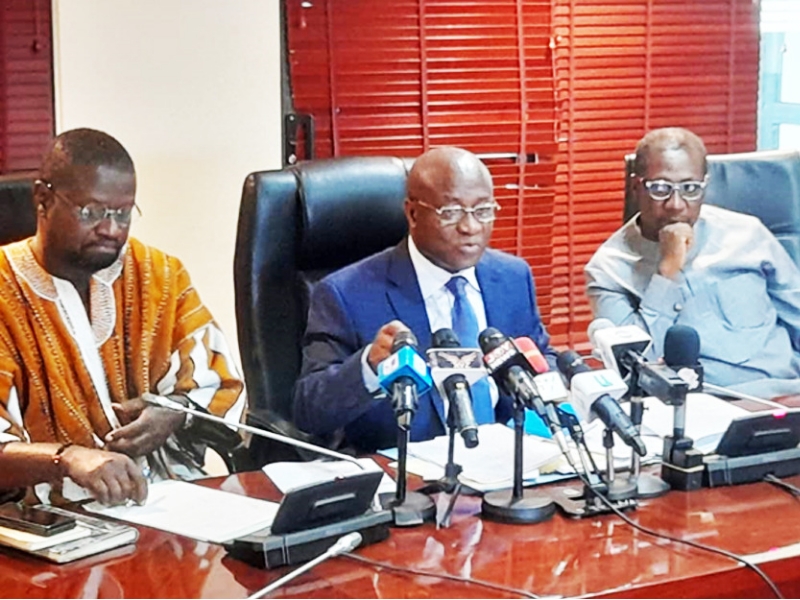The Majority Leader in Parliament, Mr. Osei Kyei-Mensah-Bonsu, has called out the National Democratic Congress (NDC) for opposing every major electoral reform.
Addressing the Parliamentary Press Corps in Parliament yesterday, the Majority Leader said: “… anytime improvement is coming into the system – migrating from opaque boxes to transparent boxes; from thumbprinted ID cards to picture ID cards; migrating from black and white to coloured pictures; and now the introduction of biometrics, every single one of them has been opposed by the NDC. Why, what explains this? What explains this?”
His comments follow the opposition that has arisen out of the Electoral Commission’s proposal to make the Ghana Card the sole identification card for the Voter Register.
It would be recalled that, the EC Chairperson, Madam Jean Mensa Adukwei, on Tuesday, briefed Parliament on the significance of the Constitutional Instrument it was seeking to lay before the House.
According to the EC Chairperson, one feature of the C.I. was the proposal to adopt the Ghana Card as sole identification for the Voter Register.
The EC noted that using the Ghana Card as the sole ID implied that the guarantor system, which allowed a registered voter to vouch for the citizenship and age of prospective applicants, would no longer be relied upon.
She indicated that, since the NIA was the institution that printed the cards, its guarantor system was the one that would be relied upon. She explained that doing away with her outfit’s guarantor system and embracing that of the NIA would ward off minors and foreigners from the voters register.
However, the Minority in Parliament, and the its mother party, the NDC, have opposed the EC’s proposal, indicating that eligible voters were at risk of being disenfranchised should this C.I. mature into law.
They have also questioned the difference between the EC guarantor system and that of the NIA, and have threatened to oppose its implementation.
But, at yesterday’s press briefing, Mr. Kyei-Mensah-Bonsu explained the differences between the two guarantor systems.
He noted that with regards to the NIA, one had to swear an oath before a Commissioner of Oaths, and the sanction that comes with providing false information was stringent to the extent that if after ten years, it was discovered that a guarantor lied, such a person could go to prison and be disenfranchised as well.
With the EC, the Majority Leader said that the system was a bit loose, and so it paved way for all kinds of untrue information to happen.
“The EC system is a bit loose. You know [one will say] oh I know this person; we stay in the same house; I know him to be a Ghanaian; I can swear… But this one (NIA guarantor system) is strict… You swear an oath; if you are found out, you go to prison, so people are afraid,” he said, and questioned why the NDC always opposed a good change.
Speaking on eligible voters being disenfranchised, the Suame Legislator said there had never been a voting that any Ghanaian had not been disenfranchised.
According to him, despite the provisions of Article 42 of the Constitution, which provides that “Every citizen of Ghana of eighteen years of age or above and of sound mind has the right to vote and is entitled to be registered as a voter for the purposes of public elections and referenda,” registration ceases sixty days before the elections, so if anyone turns 18 in two months to elections, that person will be disenfranchised.”
He called on the NDC not to invent their own understanding of the provisions of the law.










